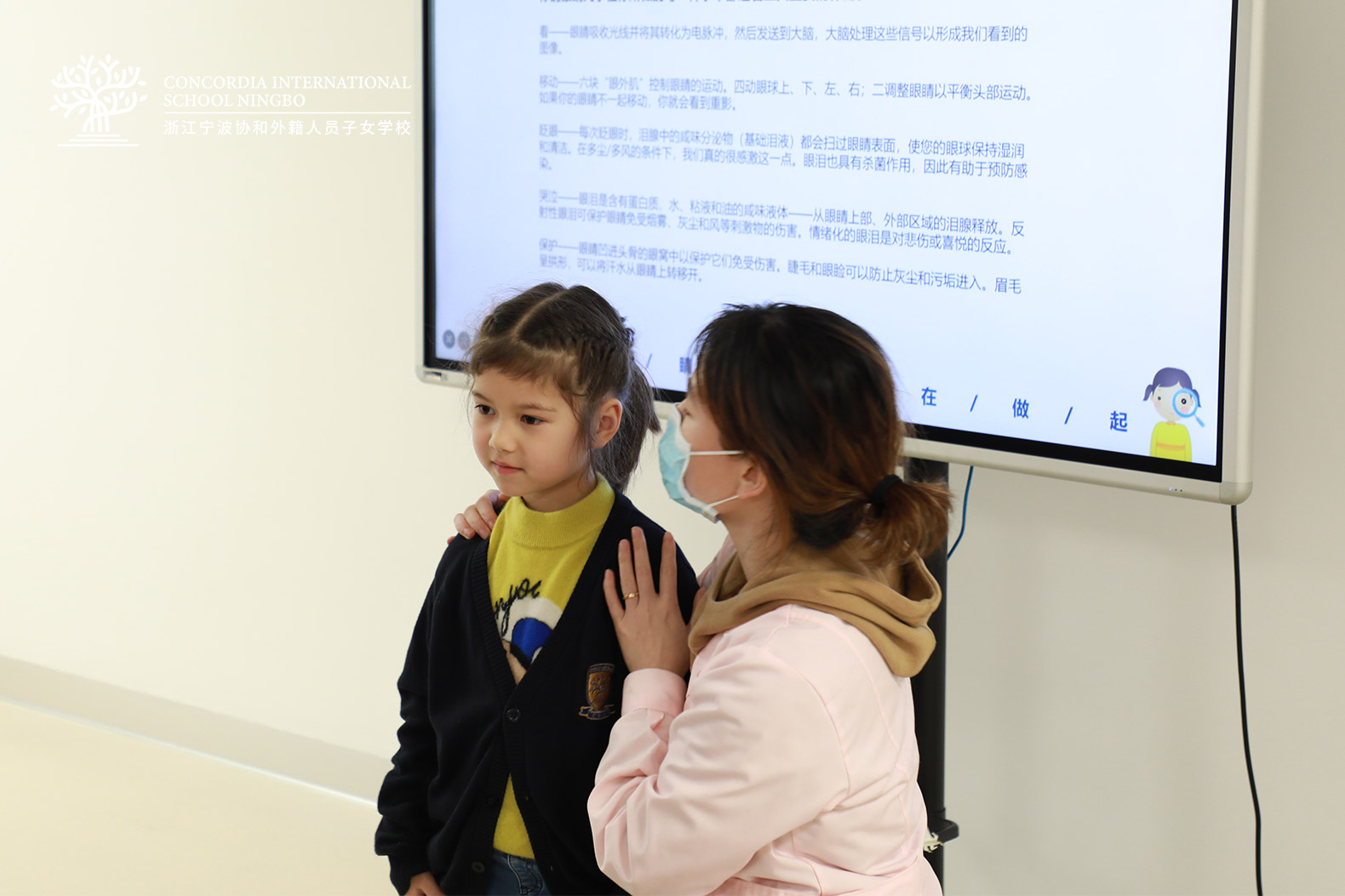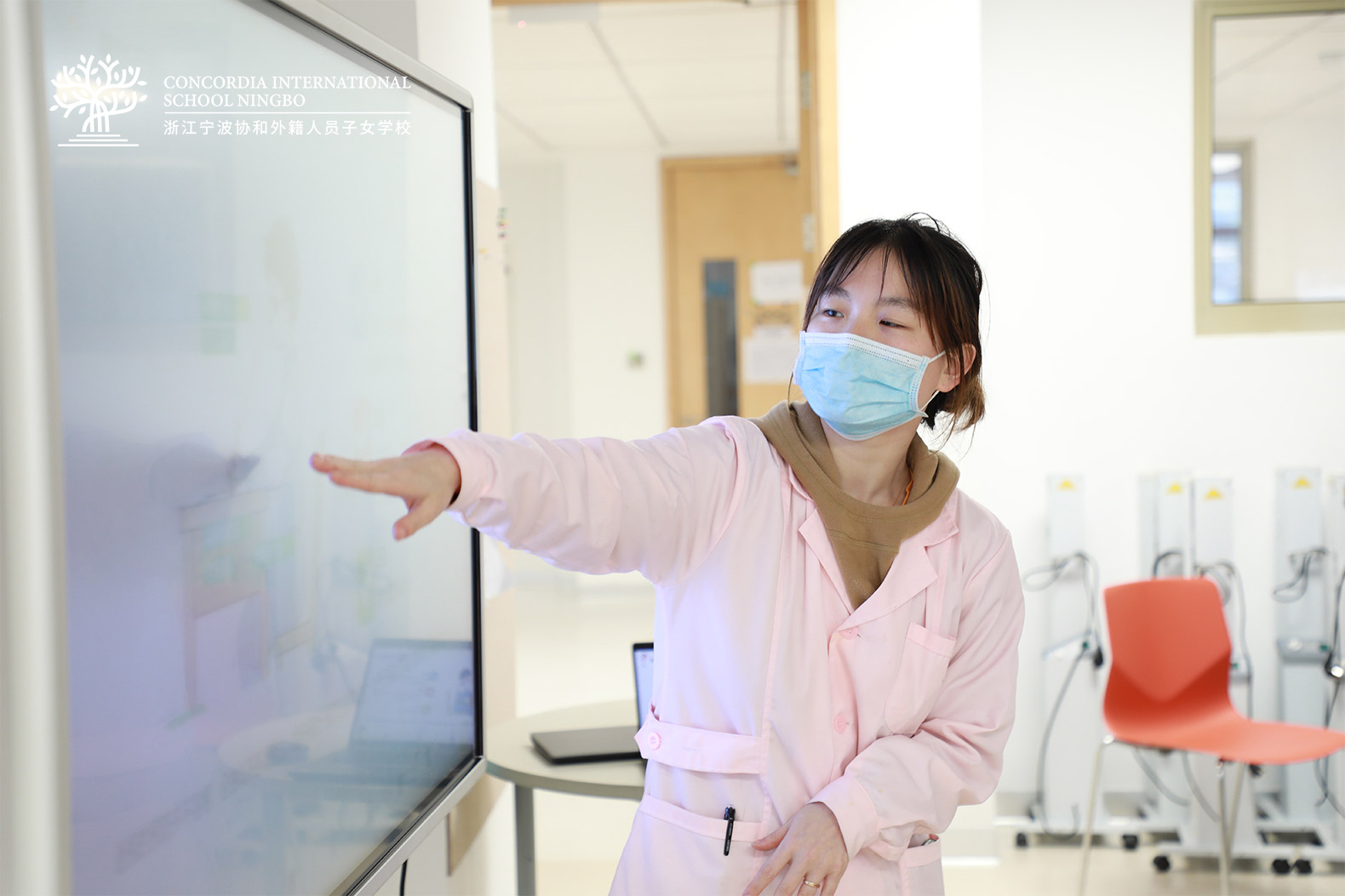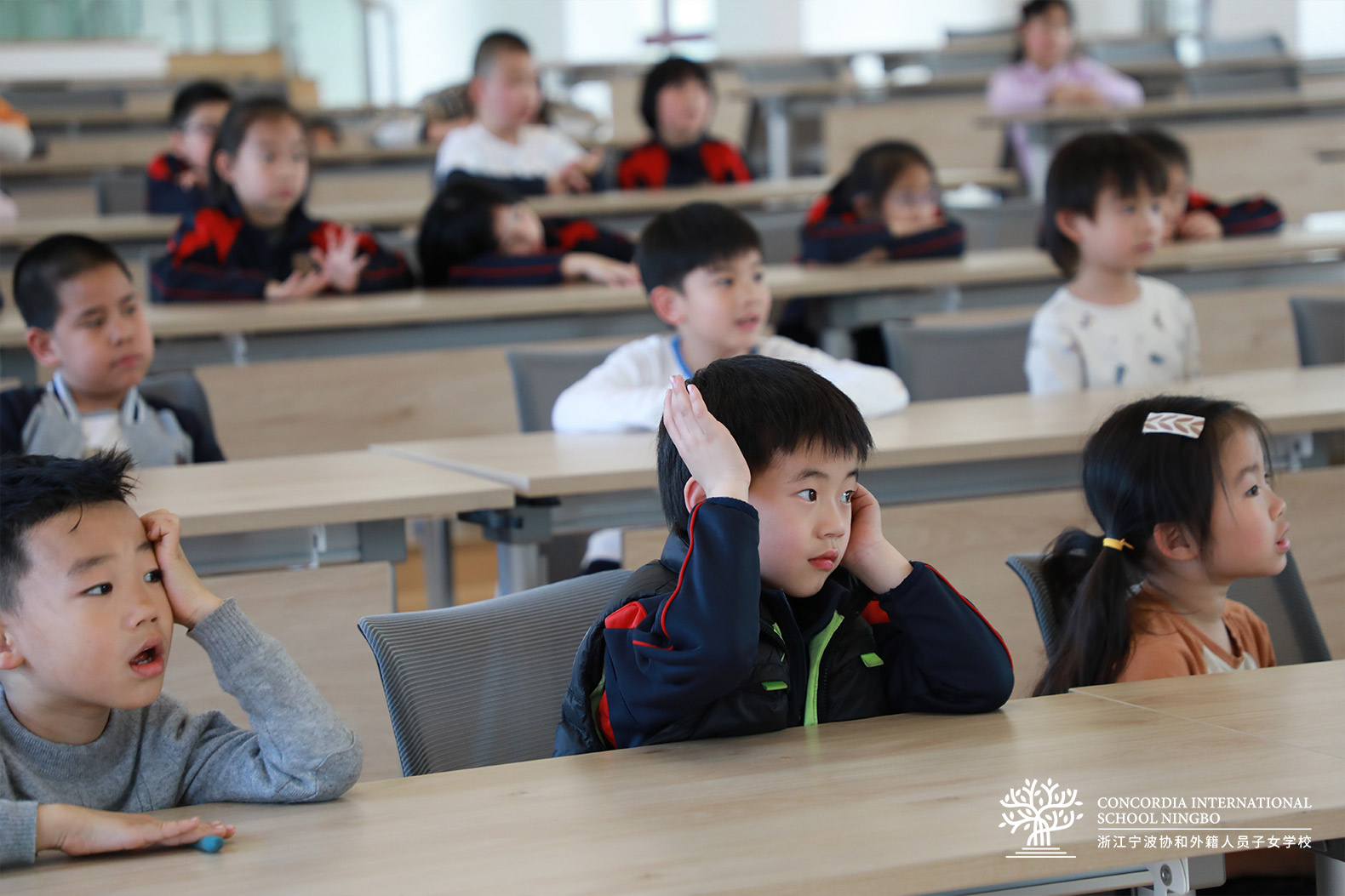



According to a study by the WHO, China's youth myopia rate is the highest in the world. In recent years, the rate has been as high as 60% to 70%, and is still increasing with the popularity of electronic products.
It is imperative to protect the eyesight of young people, especially preschool and school-age children. Children at this age should have regular annual eye examinations, and the joint efforts of schools, parents and children themselves are needed to help children develop good eye habits in their daily lives.
This month, Teacher Chen, the doctor from School Medical Office, built a health lecture on the topic of "Taking care of your eyes and preventing myopia" to the students.
Vision is the most important sense in the human body. We are able to perceive the size, light and darkness, colour, movement and so on of external objects through vision.
At least 80% of the information we receive from the outside world is obtained through vision. As one of the most important sensory organs in the human body, every student has a responsibility and duty to protect their eyes with care.
Do You Know Your Eyes?
LOOK
The eye absorbs light and converts it into electrical impulses, which are then sent to the brain, which processes these signals and then forms the images we see.
MOVE
The six 'extraocular muscles' control the movement of the eye at all times. These include the four movements of the eye up, down, left and right, and the adjustment of the eye to balance the movement of the head. These muscles control the eye to follow the movement of the head, otherwise we would see double vision.
BLINK
Salty secretions from the tear ducts sweep across the surface of our eyes each time we blink, keeping our eyeballs moist and clean. The blink reflex is particularly important in dusty and windy conditions. Tears have an antiseptic effect and help prevent eye infections.
CRY
Tears are a salty fluid containing proteins, water, mucus and oil and is released from the tear ducts in the upper, outer region of the eye. Reflex tears protect the eyes from irritants such as smoke, dust and wind.
Emotional tears are a response to emotions such as sadness or joy.
PROTECT
The eyes are recessed into the eyesockets of the skull to protect themselves from harm. The eyelashes and eyelids prevent dust and dirt from entering the eyes. Our eyebrows are arched to divert sweat away from the eyes.

Causes Of Myopia
Myopia is a condition in which the eye cannot see distant objects while it can see near objects. This is mainly due to the thickening of the lens, where distant objects converge to form a focal point in front of the retina rather than on top of it, thus causing visual distortion and making it difficult to see distant objects.
MALNUTRITION
Nutritional deficiencies, especially inadequate protein and vitamin intake, are also a contributing factor in the development of myopia. Nutritional deficiencies can cause the scleral tissue of the eye to develop and become weak and unable to carry the normal intraocular pressure, which can lead to elongation of the eye axis and cause myopia.
DISEASES
Some systemic infectious diseases such as tuberculosis, measles and scarlet fever are also associated with the onset and development of myopia. There is also a higher incidence of myopia in patients with gastric and renal prolapse and flat feet.
NOISE
Eye damage such as eye strain, eye pain, blurred vision and tearing of the eyes can easily occur if you are exposed to noise for long periods of time.
Black and white printing is not good for eyesight protection. Some paper materials that are too white and have reflected light, such as coated paper, are not suitable for teaching materials and teaching aids, as they can easily lead to visual fatigue.
PENCILS
Automatic pencils are not conducive to vision protection due to their lighter colour. Pencils that are too short, too sharp or too light can cause the head to be lowered due to the effort involved in using them, and prolonged close use of the eyes is also detrimental to vision protection.
BAD EATING HABITES
On the one hand, poor dietary habits may lead to inadequate intake of multivitamins. On the other hand, excessive intake of sweets can also lead to vitamin deficiencies, which can result in malnutrition of the developing optic nerve in adolescents.
How To Prevent Myopia?
3 MUST
Must be kept the distance between your
eyes and the book at about 33 cm.
Must take a break or look into the distance
for a while after reading or writing for
about 30-60 minutes.
Must do eye exercises carefully and correctly.
4 DO NOT
Do not read or write in low light or direct sunlight.
Do not read while lying in bed or walking, or in a swaying carriage.
Do not read reading material with too small and dense a font and unclear handwriting.
Do not use pencils with light handwriting.
GOOD EATING HABITS
Enhance your diet with foods rich in vitamin A, calcium and zinc.
GOOD LIFESTYLE HABITS
Increase physical activity and time spent outdoors.
Look into the distance regularly and ensure adequate sleep.
Preventing myopia is a 'long term battle' and these 'tips' will help prevent it from happening. For those who are already nearsighted, they can also help to slow down the progression of myopia.
OUR HOPE
The teachers of Concordia School will work together with parents and friends to monitor and remind them to protect their children's eyesight.
We hope that all students can develop good behaviour and healthy lifestyles with the support of Teacher Chen's "Eye Care Tips" and the care of their teachers and parents, and become their own little eye guardians!
WHAT WE WILL DO
At the beginning of this term, the School Medical Service will bring a Concordia Health mini-lecture to students every month.
We use our professional knowledge to help children with the armour of self-protection. Concordia School hopes that every child will develop an awareness of life safety from an early age, acquire good self-protection skills and be their own number one safety guardian!
Concordia International School Ningbo serves students from age 3 to age 18 and provides a rigorous, globally focused education that fosters inquiry, knowledge empathy, and nurtures a lifelong love of learning.
Concordia International School Ningbo
+86(0)574 8807 6699
No.18 Guangfu street,Yinzhou District,Ningbo
Concordia International School Ningbo All right reserved.